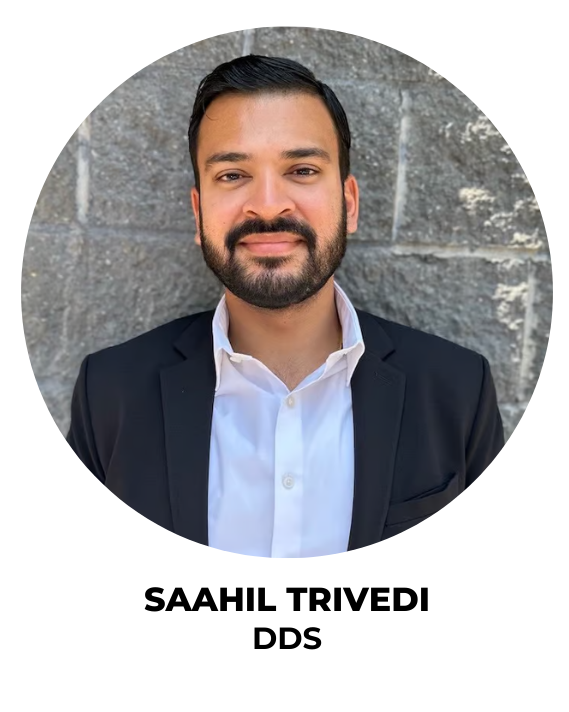Last updated on February 28th, 2024 at 11:43 am
 As dentists, we do what we do out of a place of care.
As dentists, we do what we do out of a place of care.
Dentistry is not an easy field much of the time, but we do it because we really want to help patients get better. And you know that if a patient has healthy teeth and gums, they’re going to feel better, live longer, eat better, and be healthier. What we do is pretty amazing!
But do your staff share this same passion for dentistry?
And do they really need to?
Well, first off, yes, they do need to share this passion! If your staff have the same passion as you do, it’ll make a big difference for your patients.
A lot of the time, patients will talk to and listen to your staff in ways that you don’t see. Patients will say yes to you, that they understand everything and don’t have any questions—but as soon as the assistant or administrative staff walks in, the real list of questions comes out.
For whatever reason, they don’t ask you (the doctor)—it could be that they don’t want to appear “stupid” or they feel awkward, or they simply feel bad saying “no” to you. Instead, they ask your dental assistants and the rest of your staff.
This is why it’s so important that your entire staff, including administrative staff, knows about dentistry and why it is important for patients to get the treatment they need.
As for how, I’ll go over a few tips that have helped me and my team below.
1. Educate your staff on the importance of dentistry

I routinely educate my staff on the importance of dentistry, and in fact, I actually have formal meetings with my team about dentistry. I’ve found this to be a very successful action for my practice, so here’s a little bit more detail about my meetings.
In these meetings, we go over:
- The basics of dentistry
- Basic definitions of common dental words
- Presentations of outcomes and before & after images
- What can go wrong when a patient avoids the dentist
To break this down further:
I go over basic definitions of dental terms because you’d be surprised how many of your staff actually don’t understand basic dental terms; things like scaling and root planing, root canals, etc.
I show outcomes and before & after images so they really understand the scope of dentistry and the amazing things we can do as dentists and providers when it comes to restoring people’s smiles, health, and function. Allowing someone to eat something they haven’t been able to eat for years because of their tooth condition is an incredible thing and I want my staff to see just how miraculous dentistry can be for a person.
I also educate my staff on what can go wrong if someone avoids the dentist. I think out of everything, this is the most important part about educating your staff about dentistry—what happens when someone doesn’t get dentistry done?
As dentists, we know how bad things can go wrong when someone avoids us or doesn’t move forward with their treatment plan. We know that a little cavity can turn into a massive root canal or a huge infection and can even spread throughout the entire body into the brain, lungs, heart, blood vessels, etc.
But do your staff know that?
If they don’t, it’s pretty likely they’re not going to be able to educate your patients on it.
In order to really highlight the importance of dentistry, I like to show the team photos of dental problems left untreated, and the infections, bleeding, broken teeth and all the other issues that come along with untreated dental conditions. This helps the team truly understand and grasp the consequences of delaying dental treatment.
So, when a patient says to your Financial Coordinator or Scheduler, “Actually, I’m just not sure I’m going to do the second crown right now…I’d rather wait until insurance covers it next year,” they can back you up and help educate the patient so they choose the treatment plan that’s right for them, instead of just saying, “Okay, I’ll let the doctor know,” and watching the patient walk out the door.
By simply educating your dental team, you can create a team that is just as passionate as you are and educates your patients, as well.
2. Hold a Q&A session with your staff
 During our formal meetings, we have a Q&A session where staff can ask me anything about dentistry. You would be surprised at the amount of questions staff have, even if they’ve been working in a dental office for a long time!
During our formal meetings, we have a Q&A session where staff can ask me anything about dentistry. You would be surprised at the amount of questions staff have, even if they’ve been working in a dental office for a long time!
We’ve all had patients who think a root canal means an extraction, but you’d be shocked by how many staff have this same misconception or basic questions about dentistry, such as:
- What is perio maintenance?
- What is scaling and root planing? How is it different from a cleaning?
- How does a cavity turn into a root canal?
- How does an implant work?
- What is a bone graft?
I’ve heard all of these questions from staff who have been working in the dental field for many years. So, this is why I go over basic definitions and allow them to ask me questions. Once they understand everything, they’re able to talk to patients about it.
An important note: When answering your staff’s questions and giving them definitions for dental terms, it’s important to keep things simple. It’s not medical school. You don’t want to use big terms with your staff because then they’ll use those big terms with your patients, which will cause more confusion. Your best bet is to explain things to them the same way you’d explain it to your patients.
Summary
I can’t say it enough—it’s so important to have all of your staff educated on dentistry. This includes your front office staff, administrative staff, phone staff—everyone.
Make sure they understand dentistry both from an outcomes perspective (what it can do for patients, how awesome we can make a patient’s smile, how much we can help them, etc.), but also just as importantly, the things that could go wrong if a patient avoids the dentist and doesn’t do what the doctor recommends.
Your staff want to back you up, and as long as they know how to back you up, they will.
In our office, we take this to the next level by providing MGE training to all of our staff. Whether it’s with MGE’s virtual seminars or in-person courses, they all do MGE training on communication and case acceptance, and it makes a huge difference. Request a free consultation here or learn more about the MGE Communication & Sales Seminars.



Usually I by no means touch upon blogs however your article is so convincing that I by no means prevent myself to mention some thing approximately it
https://www.clearpathortho.com/2023/01/05/best-aligners-price-in-pakistan/